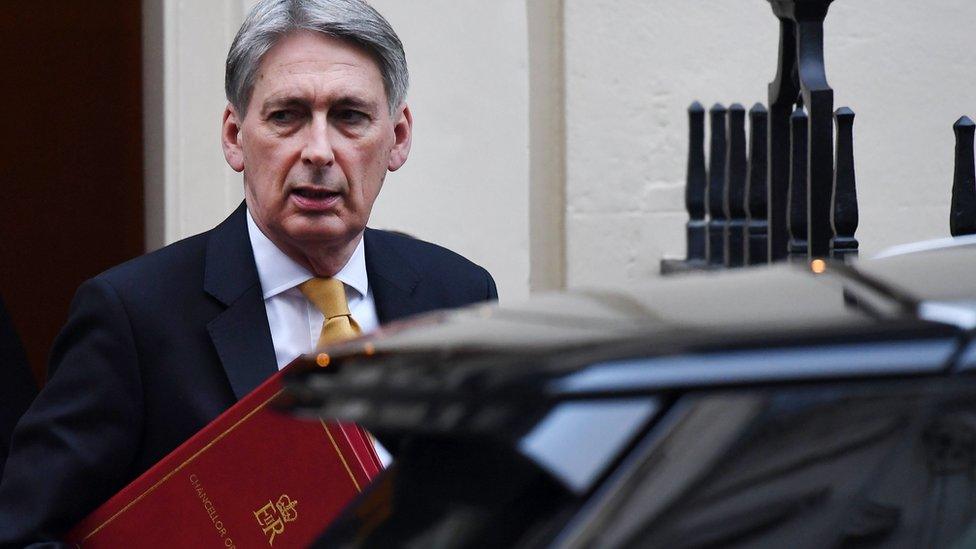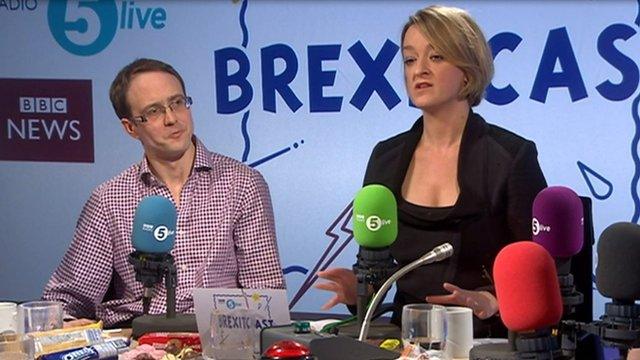Hammond plays down Brexit rift reports
- Published
- comments

Philip Hammond and other ministers have been discussing Brexit at 10 Downing Street
The chancellor has played down reports he is at odds with colleagues over Brexit as the cabinet discussed the UK's final relationship with the EU.
Twenty-five ministers had their say as the full cabinet formally discussed the subject for the first time.
Downing Street said it was a "good, clear discussion".
Ahead of the meeting Chancellor Philip Hammond said a report that he and Home Secretary Amber Rudd were "isolated" was "wide of the mark".
Mr Hammond and Ms Rudd are thought to favour staying closely aligned to the EU to ensure access to the single market in years to come, while others want greater divergence to ensure freedom to strike international trade deals.
Allow X content?
This article contains content provided by X. We ask for your permission before anything is loaded, as they may be using cookies and other technologies. You may want to read X’s cookie policy, external and privacy policy, external before accepting. To view this content choose ‘accept and continue’.
The UK is due to leave the EU in March 2019, which is expected to be followed by a two-year "transition" period.
Discussions have yet to start on what the final relationship between the two sides will look like, including how they will trade, with the UK planning to leave the EU's customs union and single market.
But the EU has recently agreed that such talks can begin.
Following Monday's meeting of a special "Brexit sub-committee" of senior ministers, this was the first time that all of the cabinet had formally discussed what "end state" the UK will aim for.
According to Downing Street, during the 105-minute meeting, Mrs May said she wanted a bespoke trade arrangement that would be "significantly more ambitious" than the EU's current free trade deal with Canada.
It must allow Britain to set its own rules and strike "ambitious" trade deals with countries around the world while having the "best possible" access to EU markets, she told ministers.
The EU, meanwhile, has published a slide shown to leaders by its chief negotiator Michel Barnier, which rules out various trade options based on the UK's "red lines".

Michel Barnier presented this slide of different trade options to EU leaders
Mr Barnier has said there is "no way" the UK will be able to choose from the good bits of the different arrangements other countries use.
And on Tuesday he told the Guardian there could not be a special trade deal for financial services to protect the City of London.
Downing Street sought to rebuff his comments.
Mrs May's spokesman said it was to be expected that the European Commission would set out its position at the start of the second phase of Brexit negotiations, adding that a good deal on financial services was in the EU's interests as well as the UK's.
- Published30 December 2020

- Published18 December 2017
